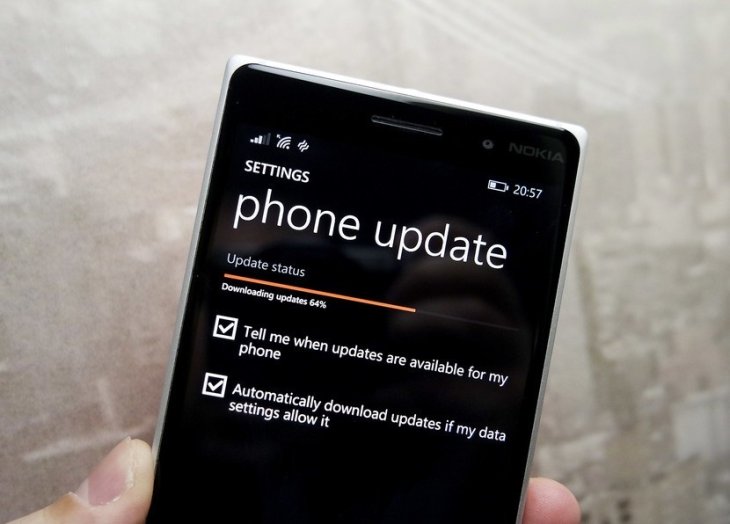Remember These 6 Simple Things To Keep Hackers Away From Your Phone
Dhir Acharya - Nov 07, 2019

There are a bunch of ways for a hacker to take over your smartphone and sometimes you can’t do anything to stop that from happening. But you can avoid that.
- Turning Old Phones Into Microscopes, This Project Will Help A Lot Of Poor Children
- Electronics Recycling: How To Get Rid Of Old Phones, TVs, Cables, And Batteries
- The Best Phones For Kids Indian Users Can Buy In 2020
A new loophole has recently been found in Android, which allows attackers to take over a phone simply with a physical tap. It took advantage of a bug in the NFC file sharing tech of the operating system called Android Beam. Google has already fixed this flaw, so get the update as fast as possible to protect yourself.
There are a bunch of ways for a hacker to take over your smartphone and sometimes you can’t do anything to stop that from happening. However, by taking some simple precautions, you can likely save yourself from those hacks.
1. Don’t give your phone to a person you can’t trust

Clear as day, you cannot trust everyone, but sometimes you let your guard down and put your trust in the wrong people. And installing an app on your phone then hiding it from your sight is a piece of cake once someone has it in their hands. So apart from acquaintances, you should be careful when having your handset repaired too. Unless you bring it to dedicated customer care, you should stick around while it’s being fixed. And after getting the phone back, you should check immediately for suspicious programs or apps that run in the background.
2. Stay updated

Keep your smartphone update automatically as these often include important security patches and bug fixes. Also, if you read news about a newly discovered hack, it’s likely that companies have fixed it or will be able to fix it, which means you should manually scan for updates.
3. Don’t trust a message from a stranger

The most common scams involve emails and messages, in which attackers trick you into clicking a link attached in a message or email, giving you some important reason to do so. Such attackers may pretend to come from your bank, a contest you won, or the Income Tax Department.
4. Don’t buy weird messages from your friends

If you get a message from a friend and find it odd, hold back and don’t click on any links included in it immediately. In this case, your friend’s account may have been manipulated to send you that message.
Do everything you can to verify that’s truly your friend sending that message and that the link is safe.
5. Check shortened links before clicking on them

Normally, you can get some idea about a link buy reading what’s in it, hence you can decide whether you want to click on it or not. But shortened links prevent you from doing this. In this case, you can use tools for expanding the URL or checking the link for malware.
6. Protect your passwords

You should have a different password for each site you sign up for regardless of how hard it is to remember all of them. If you use one password for all of your accounts and attackers get that password, you’re done.
And never, ever use simple passwords like 123456, which are too easy to guess with a couple of trials. This causes damages just as much as using one password for all accounts.
Featured Stories

Features - Jan 29, 2026
Permanently Deleting Your Instagram Account: A Complete Step-by-Step Tutorial

Features - Jul 01, 2025
What Are The Fastest Passenger Vehicles Ever Created?

Features - Jun 25, 2025
Japan Hydrogen Breakthrough: Scientists Crack the Clean Energy Code with...

ICT News - Jun 25, 2025
AI Intimidation Tactics: CEOs Turn Flawed Technology Into Employee Fear Machine

Review - Jun 25, 2025
Windows 11 Problems: Is Microsoft's "Best" OS Actually Getting Worse?

Features - Jun 22, 2025
Telegram Founder Pavel Durov Plans to Split $14 Billion Fortune Among 106 Children

ICT News - Jun 22, 2025
Neuralink Telepathy Chip Enables Quadriplegic Rob Greiner to Control Games with...

Features - Jun 21, 2025
This Over $100 Bottle Has Nothing But Fresh Air Inside

Features - Jun 18, 2025
Best Mobile VPN Apps for Gaming 2025: Complete Guide

Features - Jun 18, 2025
A Math Formula Tells Us How Long Everything Will Live
Read more

ICT News- Feb 15, 2026
X Platform Poised to Introduce In-App Crypto and Stock Trading Soon
X has been laying the groundwork for this expansion.

Mobile- Feb 16, 2026
Xiaomi Launches Affordable Tracker to Compete with Apple's AirTag
For users tired of ecosystem lock-in or high prices, the Xiaomi Tag represents a compelling, no-frills option that delivers core functionality at a fraction of the cost.

Mobile- Feb 14, 2026
Android 17 Beta 1 Now Available for Pixel Devices
While Android 17 Beta 1 doesn't introduce flashy consumer-facing changes yet, it lays the groundwork for a more robust and flexible platform.
Comments
Sort by Newest | Popular